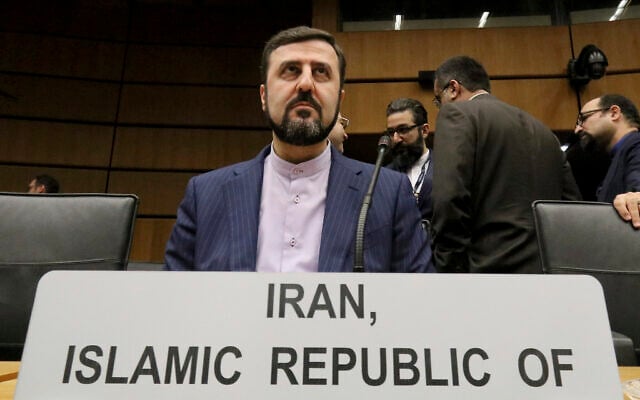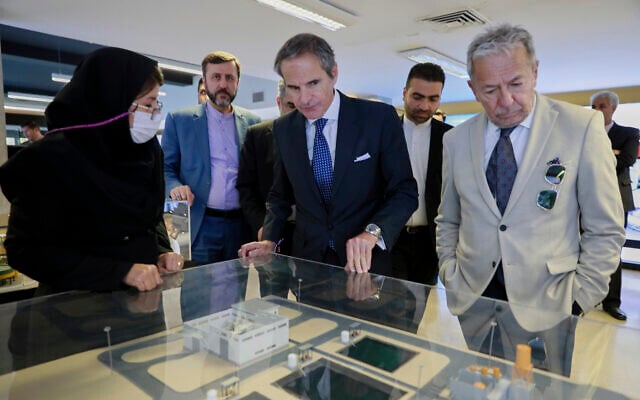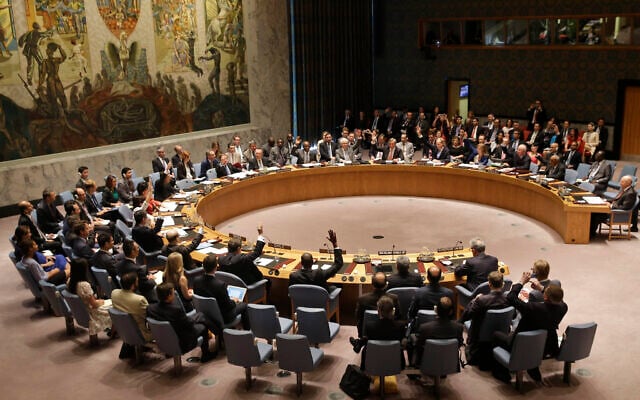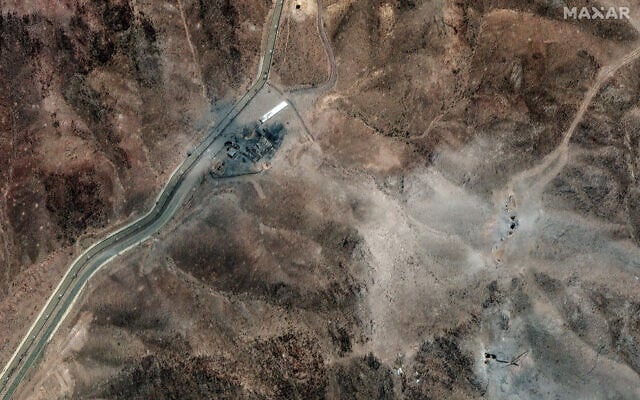


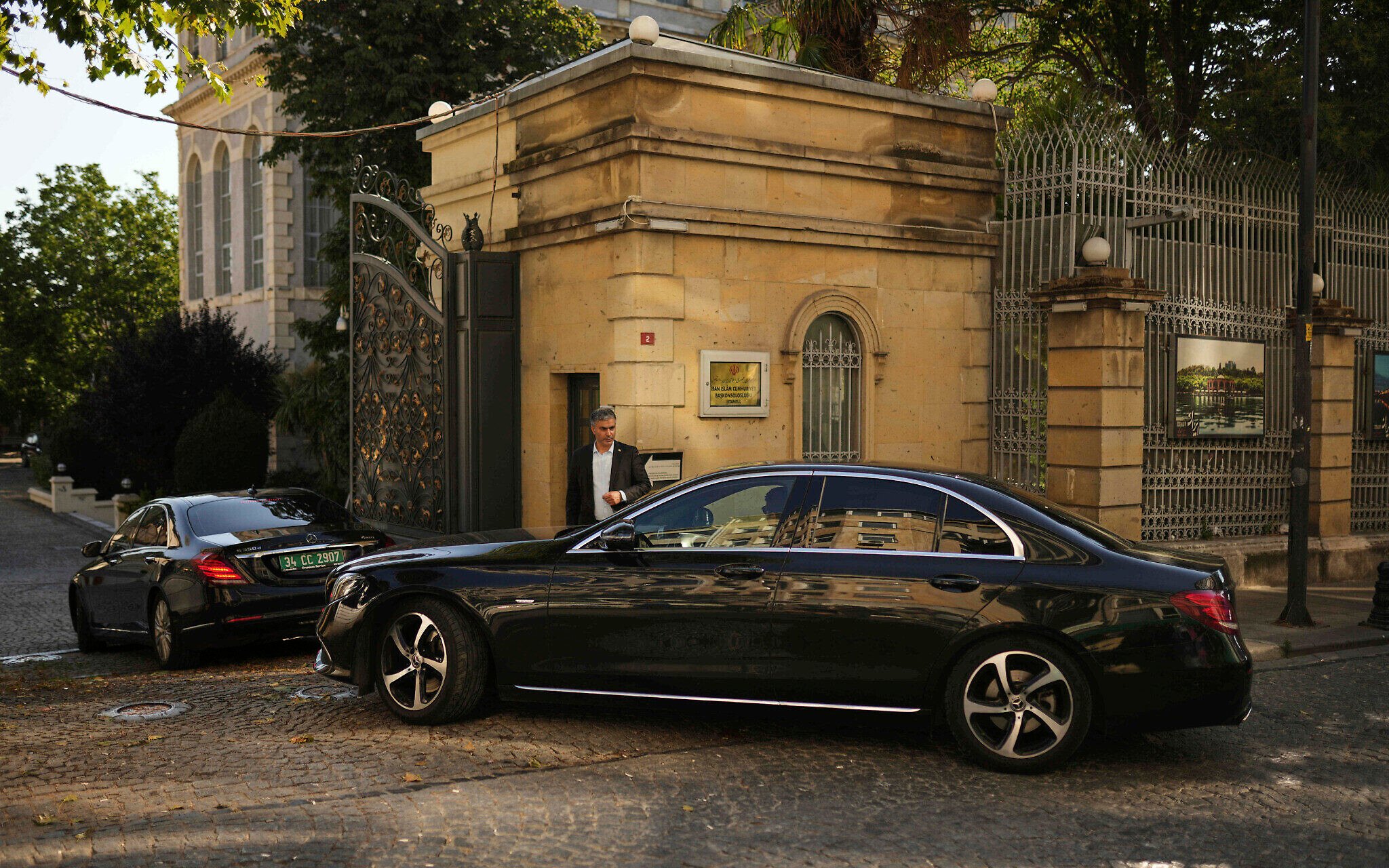
Iran said it would continue nuclear talks with France, Britain and Germany after “frank” conversations Friday, as European diplomats warned “snapback” sanctions would be triggered against Tehran should it fail to allay concerns about its highly enriched uranium stockpile.
Before the meeting in Istanbul, Iran also pushed back on suggestions of extending the United Nations resolution that ratifies a 2015 deal, nearing expiry, that was designed to curb its nuclear program.
The talks at Iran’s consulate were the first such face-to-face meeting since Israel and the US bombed Iran’s nuclear facilities during the 12-day Israel-Iran war last month, which put a halt to US-Iran nuclear negotiations.
Iranian Deputy Foreign Minister Kazem Gharibabadi said after the “serious, frank and detailed” talks with the so-called E3 group on Friday that both sides had presented specific ideas on sanctions relief and the nuclear issue.
“While seriously criticizing their stances regarding the recent war of aggression against our people, we explained our principled positions, including on the so-called snapback mechanism,” Gharibabadi wrote on social media. “It was agreed that consultations on this matter will continue.”
He added that Iran’s engagement was dependent on “several key principles” that included “rebuilding Iran’s trust — as Iran has absolutely no trust in the United States.”
Gharibabadi also said the talks shouldn’t be used “as a platform for hidden agendas such as military action,” adding that sanctions on Iran must be removed and that Iran’s right to enrich uranium “in line with its legitimate needs” must be respected.
Earlier this week, Gharibabadi said reimposing sanctions on Iran would be “completely illegal,” and accused the E3 nations of “halting their commitments” to the 2015 agreement after US President Donald Trump unilaterally withdrew from it in 2018.
Iran has repeatedly threatened to leave the Nuclear Nonproliferation Treaty, which commits it to refrain from developing nuclear weapons, if sanctions return. The Islamic Republic has already suspended cooperation with the International Atomic Energy Agency (IAEA) — the UN nuclear watchdog — following the war with Israel.
While Iran denies seeking nuclear arms, it has amassed uranium enriched to 60% — beyond what is needed for civilian use and a short step away from weapons-grade. The whereabouts of the estimated 400 kilograms (880 pounds) of highly enriched uranium are unknown since last month’s Israeli and US strikes.
Speaking to reporters in Singapore on Friday, IAEA chief Rafael Grossi said the group was planning to start technical-level talks with Iran on its nuclear program.
“So this is what we are planning to do, perhaps starting on technical details and, later on, moving on to high-level consultations. So this will not include inspections yet,” he said.
Addressing inspections, he said: “We need to agree on where to go, how to do it. We need to listen to Iran in terms of what they consider should be the precautions to be taken.”
Grossi added that he had no new information from Iran about its highly enriched uranium. “This is why it is so important that we engage as soon as possible and that we can start our inspection,” he said.
Friday’s E3-Iran talks were held at the deputy ministerial level, with Iran sending Gharibabadi and a fellow deputy foreign minister, Majid Takht-e Ravanchi. A similar meeting was held in Istanbul in May. The identity of the E3 representatives was not immediately clear, but the European Union’s deputy foreign policy commissioner was thought to be attending.
The talks, which ended after four hours, centered on the possibility of reimposing UN sanctions on Iran that were lifted under the 2015 agreement. The E3 countries, along with China and Russia, are the remaining parties to the deal following the US withdrawal.
Neither China nor Russia can veto a decision by the E3 countries to reimpose sanctions on Iran under the agreement’s so-called “snapback” option. In order to work, the option must be triggered at least 30 days before the October 18 expiration of UN Security Council Resolution 2231, which governs the deal.
Triggering the snapback option, which Israel has urged the E3 to do, would automatically reimpose sanctions targeting sectors from hydrocarbons to banking and defense. European leaders have said sanctions will resume by the end of August if there is no progress on containing Iran’s nuclear program. Diplomats say they want Iran to take concrete steps to convince them to extend the deal’s deadline by up to six months.
A European diplomat speaking on condition of anonymity due to the sensitivity of the talks, said the snapback option “remains on the table” absent concrete steps by the Iranians.
“A possible delay in triggering snapback has been floated to the Iranians on the condition that there is credible diplomatic engagement by Iran, that they resume full cooperation with the IAEA and that they address concerns about their highly enriched uranium stockpile,” the diplomat said.
Meanwhile, an Iranian foreign ministry spokesperson said before the negotiations on Friday that Tehran considered talk of extending the resolution to be “meaningless and baseless.”
A spokesman for Iran’s Atomic Energy Organization said Thursday the country’s nuclear industry would “grow back and thrive again” after the recent US and Israeli bombings. Following the strikes, Iran’s Foreign Minister Abbas Araghchi has also accused the E3 of hypocrisy, saying they failed to uphold their obligations while supporting Israel’s attacks.
Israel said its sweeping assault on Iran’s top military leaders, nuclear scientists, uranium enrichment sites, and ballistic missile program was necessary to prevent the Islamic Republic from realizing its avowed plan to destroy the Jewish state.
Iran retaliated to Israel’s strikes by launching over 500 ballistic missiles and around 1,100 drones at Israel. The attacks killed 29 people and wounded over 3,000 in Israel, according to health officials and hospitals. In all, there were 36 missile impacts and one drone strike in populated areas, causing damage to 2,305 homes in 240 buildings, along with two universities and a hospital, and leaving over 13,000 Israelis displaced.

